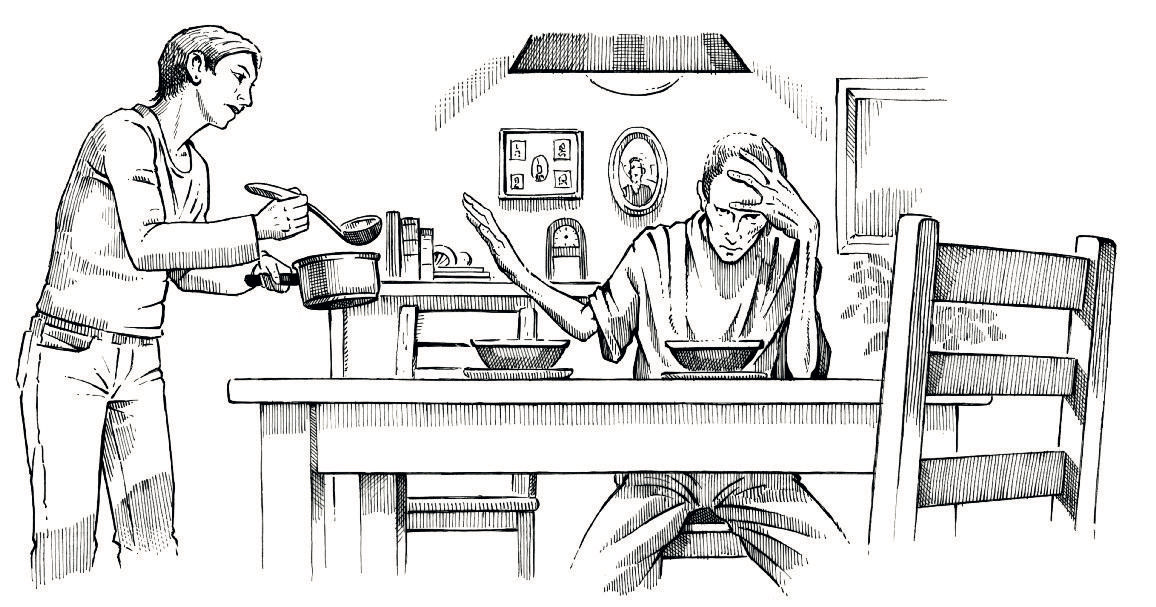For cancer cachexia, dietary counseling should be offered with the goal of providing patients and caregivers with management advice, conclude the first guidelines on cachexia ever published by the American Society of Clinical Oncology (ASCO). In the absence of evidence, the new guidelines, published in the Journal of Clinical Oncology, add that no specific pharmacological interventions can be recommended, and enteral and parenteral nutrition should not be used routinely.
Cachexia, which affects around half of patients with advanced cancer, is a multi-factorial syndrome characterised by loss of appetite, weight and skeletal muscle. The result is fatigue, functional impairment, increased treatment-related toxicity, poor quality of life and reduced survival. More recently, cachexia has been categorised into three phases, precachexia, cachexia and refractory cachexia.
The guidelines, which are based on a systematic review of literature published between 1966 and October 2019, identified 20 systematic reviews and 13 randomised clinical trials for inclusion. The intention of the guidelines, co-chaired by Eric Roeland from Massachusetts General Hospital Cancer Center, Boston, and Charles Loprinzi from Johns Hopkins Medicine, Baltimore, was to provide evidence-based guidance on the optimal approach to treating cachexia in patients with advanced cancer.
Key recommendations include:
- Clinicians may refer patients with advanced cancer and loss of appetite, and/or body weight to registered dieticians for assessment and counseling, with the goal of providing: practical and safe advice for feeding; education regarding high-protein, high-calorie, nutrient-dense food; and advice against fad diets and other unproven or extreme diets. Outside of clinical trials, clinicians should not routinely offer enteral tube feeding or parenteral (intravenous) nutrition.
- Evidence remains insufficient to strongly endorse any pharmacologic agent to improve cancer cachexia outcomes, with no FDA-approved medications for the indication of cancer cachexia. However, clinicians may offer a short-term trial of a progesterone analogue or corticosteroid to patients experiencing loss of appetite and/or body weight.
- Outside the context of a clinical trial, no recommendation can be made for other interventions, such as exercise, in the management of cancer cachexia.
“To date, the primary limitations of cancer cachexia clinical research include the use of highly varied definitions, heterogenous end points, and a lack of integrated biomarkers,” write the authors.
As understanding of cachexia biomarkers and body composition increases, they are optimistic that treatment may eventually involve single or combination strategies, including targeted pharmacologic agents, nutritional support, and exercise.
In future, the authors add, evaluation of cancer cachexia biomarkers may allow identification of critical time points for interventions, and effective markers for surveillance of cachexia-related characteristics, such as appetite. Furthermore, identifying patients with early evidence of malnutrition, using CT scans for example, would theoretically make it possible to undertake routine body composition analysis and target groups of patients who could benefit from early nutrition interventions.
Jann Arends, co-chair of the recent Sharing Progress in Cancer Care (SPCC) Task force on Nutrition and Cachexia in Cancer Patients, says that the ASCO guidelines highlight the serious lack of high-quality clinical trials being undertaken in cachexia. “The ASCO guidelines just included the highest quality evidence (randomised controlled trials and systematic reviews), while the earlier European Society for Clinical Nutrition and Metabolism (ESPEN) guidelines and upcoming European Society for Medical Oncology (ESMO) guidelines were based also on lower levels of evidence, such as trials for exercise,” says Arends, from the University of Freiburg, Germany, who was first author on the ESPEN guidelines. “In clinical practice, when there are so few treatments to offer patients, therapies with lower levels of evidence can also be extremely valuable.”
He also raises the issue of terminology: “Currently, we often don’t agree whether we are talking about precachexia, cachexia, or refractory cachexia,” and adds that the first step for improving the standard of cachexia trials would be to align international definitions of the condition.











